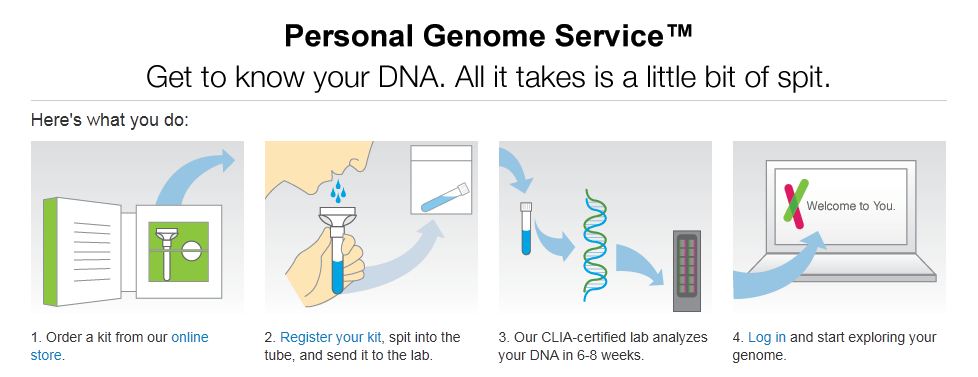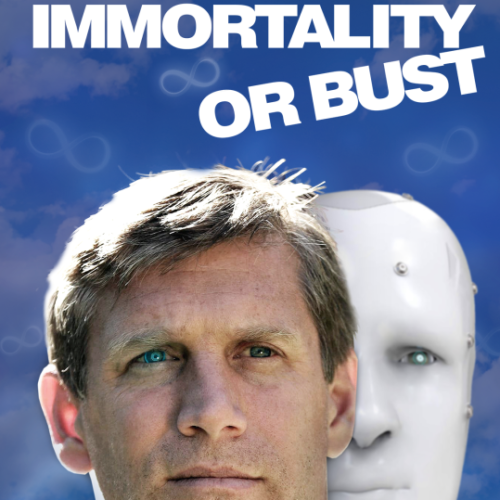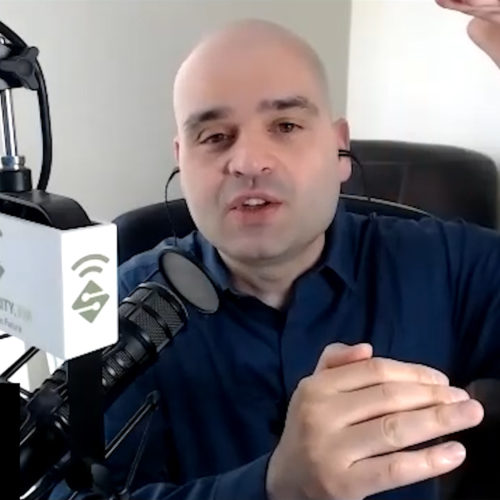23andMe DNA Test Review: It’s Right For Me But Is It Right for You?
 I have been eager to find out my genetic predispositions for some time now. Thus, when 23andMe had an incredible one day sale for their phenotype DNA test, I just could not pass by such an opportunity to get what I wanted for me, while simultaneously doing a review of this new and interesting product for you.
I have been eager to find out my genetic predispositions for some time now. Thus, when 23andMe had an incredible one day sale for their phenotype DNA test, I just could not pass by such an opportunity to get what I wanted for me, while simultaneously doing a review of this new and interesting product for you.
The main question I was trying to answer was: Is it worth doing the phenotype DNA test?
In the end, my conclusion is that it is. However, for reasons listed below, other people may reach a different conclusion for themselves. Hopefully, after reading my review, you would be in a better position to make an informed decision whether such a product is right for you too. In order to accomplish that I will start with a brief video introduction to what is DNA in general and phenotype (or SNP) DNA in particular. Then, I will look at the process of taking the test and show you a video of how I did it myself. Consequently, I will proceed by looking at the associated costs as well as some of the issues surrounding the pro’s and con’s of getting the test done. Finally, I will end with my personal verdict of the product.
One of the really great things about 23andMe is the fact that they provide a sea of useful information for those who are interested in learning more about their genome and the interpretation of specific genes. For starters, you can visit the 23andMe YouTube Channel and watch some short educational videos about genetics. Here are the 3 most relevant and informative clips:
Genetics 101: What is DNA?
Genetics 101: What is a SNP (Single Nucleotide Poliymorphism)
What is Phenotype?
The Testing Process
During my Singularity 1 on 1 podcast interviews with a number of experts such as Aubrey de Grey, Terry Grossman and Andrew Hessel, I was told repeatedly that tests such as 23andMe’s personal genome service are among several tests that are worth doing. Given that, at best, I have a very limited knowledge of the field, I thought that I’d listen to their advice.
Here is how the process works:
The Saliva Sample DNA Test Kit
Lab Processing of Saliva Samples
The Costs
Recently, the price for 23andMe’s personalized genome service went down from a one time fee of $199 to the current $99 USD. On top of that you have to pay kit shipping costs to and from your address plus $9 monthly on-line membership fee for one year. Thus, provided that you live somewhere in continental US and pay the full price, you should expect:
$99 + (12months X $9 each) + roughly $30 for shipping = $237 (total cost for the year)
In my case I took advantage of a one-day DNA Day Sale and thus had to pay only the shipping and the $9 monthly fee for 12 months. Since I am located in Canada my shipping was about $50 and hence my total yearly cost will end up being around $158.
Let me also say that in my opinion the $99 one time fee is a fair amount to pay for what you get so don’t feel that you will be overpaying if you order your kit now. This way you can get your results in the fastest way possible. However, if you are interested in getting the best price possible, then I recommend that you start following the Spittoon – the 23andMe blog. There you can be among the first to hear about any future promotional discounts and sales you can take advantage of.
Full Genome Mapping vs. Phenotype (SNP) DNA Test
Now that we’ve covered the mechanics and the costs, it is time to mention at least some of the more important issues related to DNA testing in general and phenotype or SNP DNA testing in particular.
A big part of arguing for or against any test comes from understanding its goals, its accuracy and its implications. Thus, the first step of deciding, if it is worth doing for you or not, consists in finding out what the test does and does not do.
For starters, make sure you are clear that this is not a complete mapping of your personal genome. What 23andMe offers is a SNP DNA test. This means is that it does not map and examine all your 3 billion genome base pairs but tests only what are arguably the most important 1 million snips of your DNA. While this may be a small part of your total genome it is supposed to be a rather revealing one. In fact, it is for this reason that the test is so affordable. Otherwise, you would be looking to pay upwards of many thousands of dollars rather than the mere couple of hundred you would be paying with 23andMe. In addition to cost, another advantage of the SNP test is that it is much faster while the main disadvantage is that it is less accurate. So, make sure you understand the differences and recognize the pro’s and con’s of each test.
In terms of general accuracy, having a specific gene does not necessarily guarantee a specific or certain type of (health) outcome. Though the exact importance of your genes is still very much a matter of scientific debate, currently the predominant opinion claims that genes determine only about 20-30% of the outcome. The other 70-80% are a result of your environment and life choices such as nutrition, sleep and stress patterns, physical activity etc. Thus no DNA test can or will ever predict your future. At best, what it can do is provide you with a good idea of your odds but how you play those is up to you.
Can you handle the truth?
While the issues mentioned above pertain to the accuracy of DNA testing, the bigger issues are moral ones. So even if we can have perfectly accurate DNA test results, for many, the biggest question, at least at the personal level, is:
“Do I really want to know that?”
For example, when I told my family that I have sent a saliva sample for testing, my sister-in-law said that she does not really want to know what are her chances of developing breast cancer. So if you feel the same way and prefer to not know, then, you definitely should not take the test. I start from the presumption that knowledge is always better than ignorance, even if many may adopt the “ignorance is bliss” attitude.
There is also a whole other spectrum of legal, practical, political and ethical issues related to DNA testing but I will not dwell on those here for this is not the purpose of my review. All I will say is that it may be good to think through all the potential implications of your results before you actually do the test. (Perhaps you can watch a couple of movies such as Gattaca)
The Results
One thing that surprised me pleasantly was the fact that, even though 23andMe says your results take between 6 and 8 weeks, I had mine ready and uploaded to my on-line profile only 2 weeks after sending my sample.
Below is a screen-capture of my health overview home page. Have in mind that this is only a small fraction of a sea of personal information that 23andMe provides you with. In fact, I still haven’t had the chance to read even half of it.
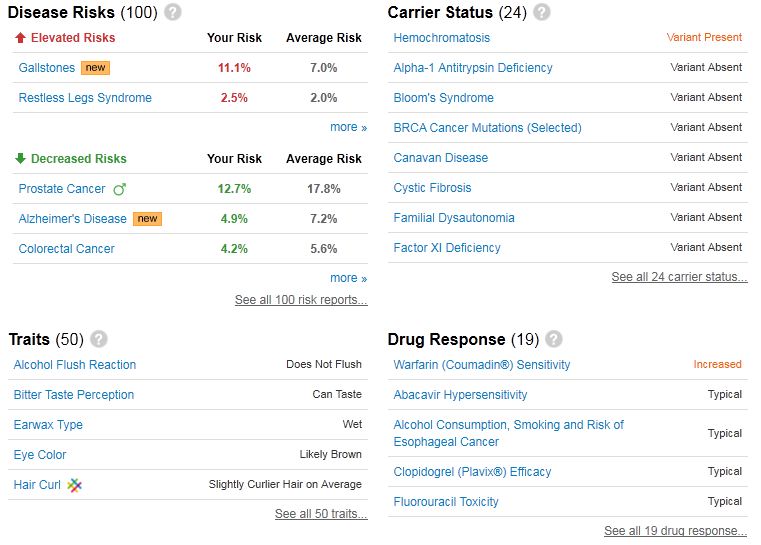
For reasons of privacy I will not go into all the minute details of my personal results but you should know that your DNA results are grouped into four main areas: Disease Risks, Carrier Status, Traits and Drug Response.
Each of those has its own homepage with dozens, if not hundreds, of specific items within its respective group (e.g. disease risks), which are then given a percentage number representing your specific personal risk, as well as the respective average general population risk.
Furthermore, each of those items is also clickable and thus you can go to its specific home page (e.g. Alzheimer’s Disease), where you can read more about your own data and how that disease works or get some technical reports and scientific citations used to compile the information. All in all, we are talking thousands of pages of relevant in-depth scientific information which is regularly updated with the latest research for the duration that you pay your $9 monthly membership fee.
Another interesting element of your results is the information provided about your ancestry along your maternal and paternal lines. Here is a screen-shot of the map representing my maternal line.
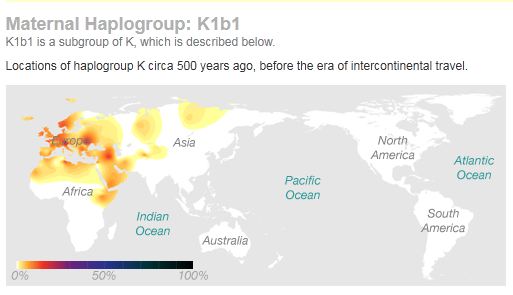
For those interested in your family tree, know that there is an optional free “Relative Finder” service on your profile page where you can look for and get in touch with other people who have also opted into the database and you share genes with. In this way you can actually find distant relatives you never knew existed. Interestingly, while I haven’t had the time to use or examine that part of my profile yet, since I did opt into the service, I was already contacted by someone who is a naturalized American of Bulgarian origin. According to 23andMe that person is probably my fifth cousin.
The Verdict
A big part of your decision is what you expect to find out and how you view the usefulness of any such information.
While curiosity was certainly a part of my motivation for taking the test, I had some very real medical concerns too. I come from a family with a long and lethal history of cancer, diabetes and heart disease. That fact has motivated me to make (mostly) healthy life-choices with respect to nutrition and physical activity. Yet, since genes play an important role, I thought that knowing more accurately my genetic predispositions can provide useful new information and prioritize and focus my efforts on specific things that I should and should not do.
I was relieved to find out that my odds are pretty good because I am showing decreased risk for most major ailments such as Heart Disease, Diabetes, Prostate Cancer, Alzheimer’s and Parkinson’s disease. However, even if it were mostly bad news, it would not have been a reason to despair. In fact, I would have been even more motivated to take action and have as healthy a lifestyle as I possibly can.
In the end of the day I strongly believe that 23andMe provides an excellent product and great value for the money. You can say that, given my results, I didn’t make any big discoveries about my genome for there was nothing that really jumped out at me. Yet I did discover and, with every profile update, will continue to find out many important and interesting things both about my genes and my family tree. (Not to mention that I got connected with a person who may turn out to be a distant cousin of mine.)
Furthermore, even if it seems that I have been lucky genetically speaking, it does not mean that I did not benefit from the test. I would argue that the shorter the genetic straw you draw, the more important it is for you to be aware of it. Knowing about the existence of a potential problem is the only way that you can ever be proactive in avoiding it or, if necessary, be active towards resolving it. Indeed, it is a fact that cancer patients who get well educated about their medical condition have three times better chances of surviving than those who don’t put any effort on their own but blindly follow their doctor’s prescriptions.
While genetics is still a relatively new science in its early stages of development, we are already at the level where we can begin benefiting from it. DNA tests are not only here to stay but also a good example of a cutting edge application with serious potential benefits that you can access right now. So, even though in the future such tests will certainly be better, faster, cheaper and more accurate, at least until you are able to do a full mapping of your personal genome for a similar price, I will argue that this product is worth doing.
In short, based on the reasons above, I regularly recommend 23andMe‘s Personal Genome Service to all my friends and relatives. In fact, my wife Julie will be next to send her saliva test.
Video Updates:
23andMe vs. the FDA in less than 4 minutes
23AndMe issues statement on FDA smackdown
Dear 23andMe Customers,
I wanted to reach out to you about the FDA letter that was sent to 23andMe last Friday.
It is absolutely critical that our consumers get high quality genetic data that they can trust. We have worked extensively with our lab partner to make sure that the results we return are accurate. We stand behind the data that we return to customers – but we recognize that the FDA needs to be convinced of the quality of our data as well.
23andMe has been working with the FDA to navigate the correct regulatory path for direct-to-consumer genetic tests. This is new territory, not just for 23andMe, but for the FDA as well. The FDA is an important partner for 23andMe and we will be working hard to move forward with them.
I apologize for the limited response to the questions many of you have raised regarding the letter and its implications for the service. We don’t have the answers to all of those questions yet, but as we learn more we will update you.
I am committed to providing each of you with a trusted consumer product rooted in high quality data that adheres to the best scientific standards. All of us at 23andMe believe that genetic information can lead to healthier lives.
Thank you for your loyalty to 23andMe. Please refer to our 23andMe blog for updates on this process.
Anne Wojcicki
Co-founder and CEO, 23andMe

